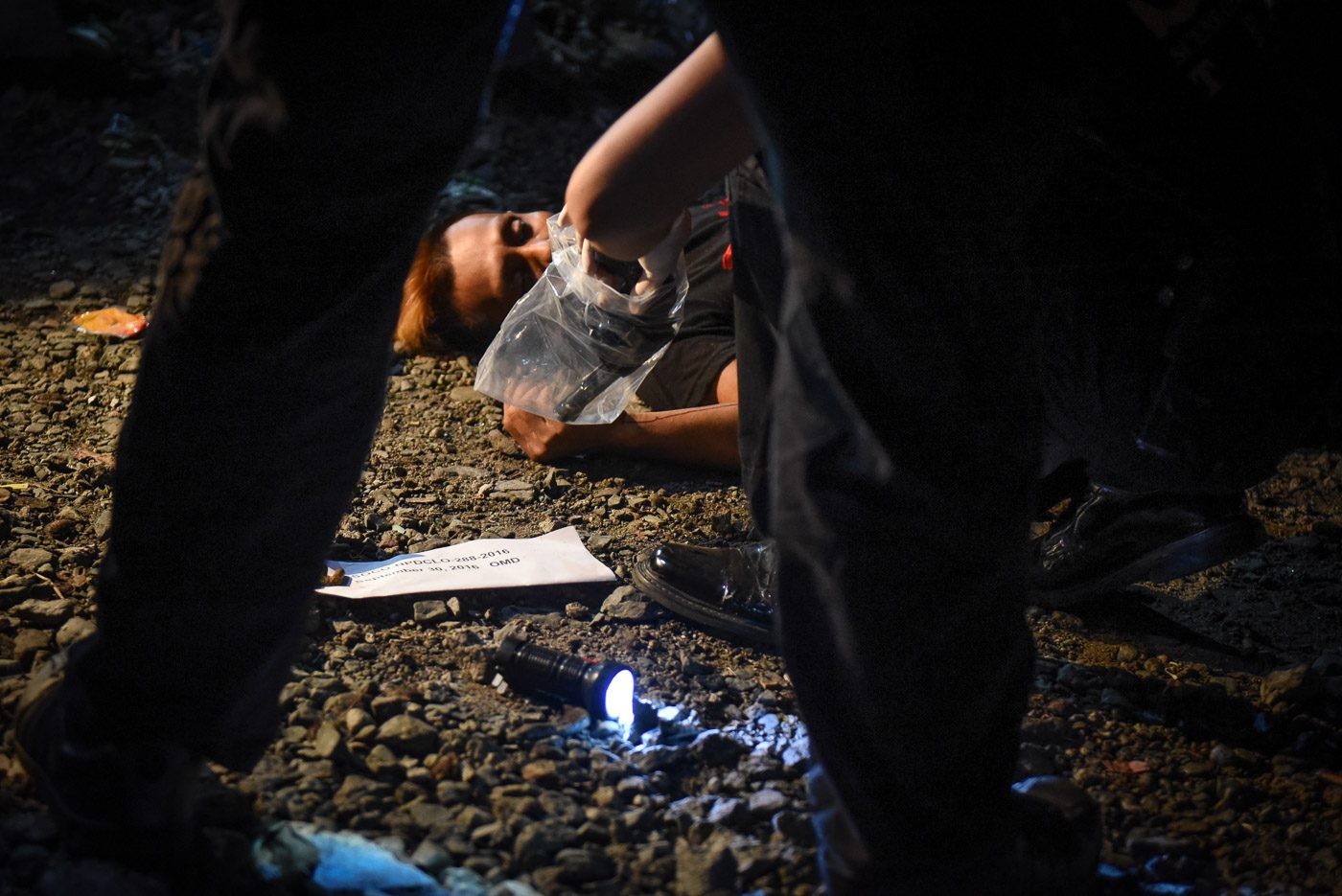SUMMARY
This is AI generated summarization, which may have errors. For context, always refer to the full article.


MANILA, Philippines – Philippine human rights lawyers have challenged the Duterte administration’s war on drugs by asking the Supreme Court (SC) to issue a new writ that they hope would prevent extrajudicial killings in police operations.
In its petition before the High Court on Wednesday, April 26, the Center for International Law (CenterLaw) asked for a “Writ Contra Homo Sacer” that would institute mandatory investigative procedures in the aftermath of police operations.
A writ is a new or revised set of rules issued by the court to fit a present context or situation. “Homo Sacer” is a Latin term for an individual who may be killed by anybody at any time.
“(Our) proposal aims to prevent drug suspects or any other criminal suspects for that matter, from being treated as homo sacer and from being subject to banishment to the realm of uncertain fate,” CenterLaw said in a statement.
Read Rappler’s exclusive investigative story on summary killings:
The Writ Contra Homo Sacer will provide for new mandatory inquest proceedings whenever someone is killed from either legitimate police operations or vigilante-style killings. It proposes to bring to the judicial system every drug-related death.
“The courts have not had the chance to exercise its restraining or sanctioning power. The buy-bust operation is conducted by the police under the rubric of valid warrantless arrest and thus no warrant is applied for and issued by the judge,” CenterLaw said in its 14-page petition.
“An extrajudicial killing (EJK) is an outright breach of law. And regardless of the fact that the suspect may have fought the police, it is not for the police to write off the crime and proclaim that the killing was justified,” it added.
The writ would compel the police to immediately file full documentation and reports on the death, including documents of their own operations from planning to implementation.
This way, police operations would be more transparent as they now have to provide the proper paper trail and point to specific accountabilities. It would answer questions on whether the operation was cleared, and if so, when was the clearance given and who gave the green light?
While CenterLaw acknowledges that these rules are already existing, it said they are often ignored. (READ: A gruesome tale of TokHang: ‘Sir, may humihinga pa’)
“Thus, to ensure full compliance by both public prosecutors and law enforcement agencies, the Center asked the High Court to incorporate them into an amendment to the Rules of Criminal Procedure or into a new class of protective writs similar to what it had earlier issued, namely the Writ of Amparo and the Writ of Habeas Data,” CenterLaw said.
CenterLaw said that the SC can adopt the strict international standards laid down by the United Nations Manual on the Effective Prevention and Investigation of Extra-Legal Killings, Arbitrary and Summary Executions, Enforced Disappearances and Torture or the Minnesota Protocol.
CenterLaw vs the war on drugs
In February, CenterLaw secured a permanent protection order for victims of Oplan TokHang, now named Oplan Double Barrel Reloaded. The group represented the survivor of an anti-drug police operation, and the families of the rest who were killed. (READ: 1st petition vs Oplan TokHang filed at SC)
The permanent protection order resulted in the reassignment of Quezon City cops involved in the operation, and compelled their commanders to bare details of their investigation on whether or not it was a case of extrajudicial killing.
CenterLaw proceeded to file murder charges against the local cops. During their filing last March, CenterLaw’s Rommel Bagares lamented the lack of cooperation of the police when it comes to providing documents.
CenterLaw had expressed its plans to expand its legal action, from challenging a specific local police operation to possibly challenging the drug war in its entirety.
The petition for a writ contra homo sacer is CenterLaw’s first attempt at that.
“We write to implore the Supreme Court to promulgate additional rules on criminal procedure to help prevent the disturbing emergence of a class of people who – harking back to ancient Roman times – are no more than homo sacer, or beings reduced to mere biological existence, denied of all rights, marked for execution anytime and anywhere,” CenterLaw said in their petition.
CenterLaw’s Christina Antonio told Rappler in a text message that the group “will relentlessly fight abuse and misuse of government powers that result in violations of human rights in the current war against illegal drugs, and it will continue to file cases towards this end.”
CenterLaw submitted its petition directly to the SC en banc.
Writ Contra Homo Sacer by Lian Buan on Scribd
– Rappler.com
Add a comment
How does this make you feel?
There are no comments yet. Add your comment to start the conversation.